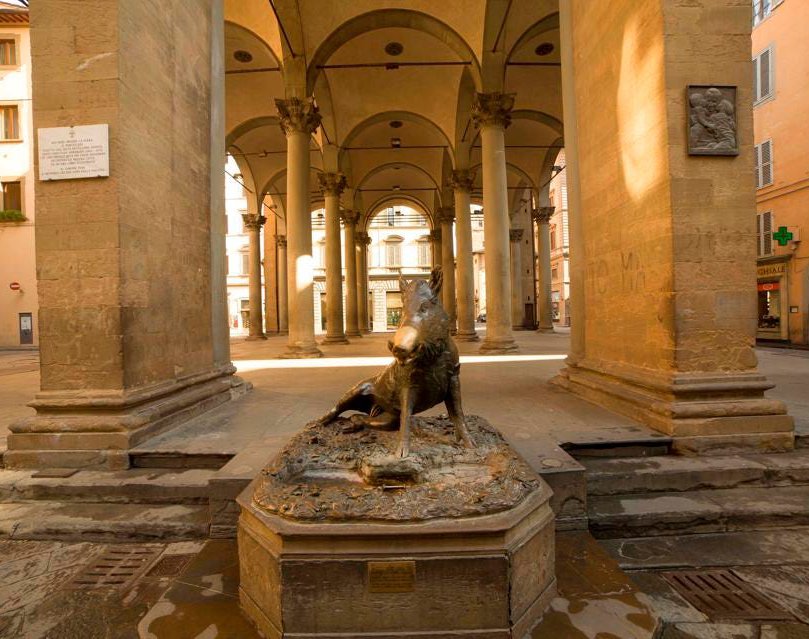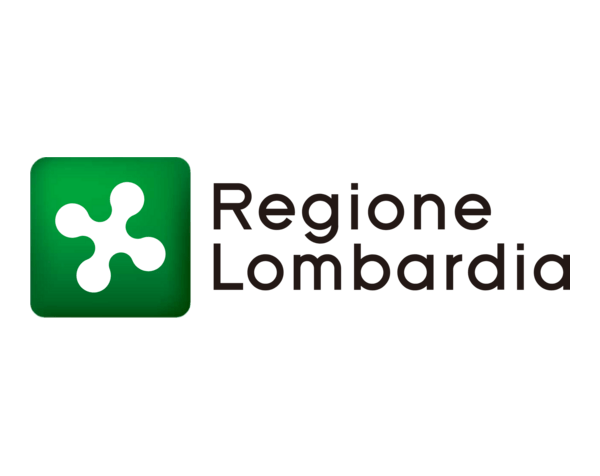Florence’s Mercato del Porcellino is so named for the hefty bronze boar that lounges beneath the arcades of the Renaissance loggia. Normally, it’s tourists who rub the pig’s now well-shined nose for good luck. But in these months, with a dearth of customers, it’s the leather sellers whose stalls lie just behind in the open market who need the animal’s fortune. [Florence’s Long-Standing Leather Vendors Long For Tourists’ Return – Forbes]
Carlo Lippi is a third-generation leather vendor. His stall was first set up in the Mercato del Porcellino by his grandfather, just after the war. But leather, one of Florence's most famed products, has a much longer history. Thanks to the city's location along the Arno river, there was a plentiful supply of water to aid the tanning process required for producing leather. A leather-workers guild was established in 1282 and Florence became renowned across Europe for its high-quality products. Still today, visitor flock to the city to purchase the one-of-a-kind garments and bags in independent leather shops and the outdoor market.
But on a weekday in February amid the pandemic, the leather market is almost completely devoid of perusing customers. Lippi passes the time talking to fellow long-standing seller Oscar Cioppi, who opened his stall here in 1989. "It's been two really terrible years for us," Cioppi says. The leather goods here are bought almost exclusively by tourists, both foreign and Italian. With borders closed and heavy travel restrictions, the leather sellers' main client base has been almost completely absent since early 2020.
Last winter, Cioppi, Lippi and another vendor would often be the only three stalls open in the market, sometimes even alternating between them. Even now, there are several sellers missing. "Some vendors are staying home or have found other temporary jobs," Lippi says, "because we still have to pay fees and taxes to sell here even if we make no sales." He adds that over the winter, earning 100 euros would represent a good day.
Artisanal crafts throughout the city have suffered similarly. Just down the road, the famed Ponte Vecchio is home to tiny jewelry shops that cling to the exterior of the bridge. They, too, saw their client base decimated. Some shops still remain shuttered on weekdays, their shimmering golden wares hidden by solid wooden panels with characteristic fleur-de-lis hinges. "It's been brutal for the historic center," says Cioppi. Even activities that don't depend on tourists suffered, he notes, like the pharmacies and small food shops. Further out of town, Cioppi says businesses are faring better as they can also rely on custom from local residents.
Like other businesses, Lippi and Cioppi have been receiving some emergency government aid, but they say the funds arrive so slowly that they have to dig into savings anyway to tide them over.
Some tourists are now trickling back to the city, but it's a paltry number compared to before the pandemic. As Cioppi notes, some of the most obvious absences are tour groups and cruise passengers. While neither vendor is an advocate of mass tourism or oversized cruise ships, the hiatus in these large numbers of visitors arriving is a significant loss for business.
Finally, a customer arrives and begins eyeing Cioppi's stall. He rushes off to try and make his first sale of the day. Moments later, a lone tour group meanders past, a few heads turning curiously, noses sniffing the scent of leather. Lippi's eyes follow them as they round the corner. "Florence will need a few years to recover from this," he says, "but it will recover, I'm sure of that."



